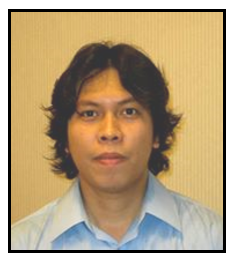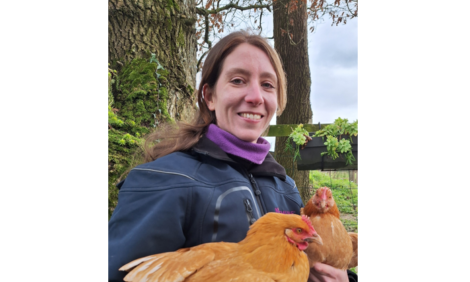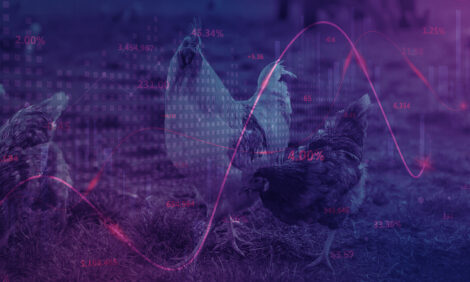



‘Like a War Zone 24/7’: 2016 Winner of the WPVA-Zoetis Young Poultry Veterinarian Award Describes Poultry Farming in the Philippines
The Poultry Site meets Dennis Villaseñor Umali DVM PhD, currently working at the Department of Veterinary Clinical Sciences, College of Veterinary Medicine, University of the Philippines Los Baños, and hears about the 31-year-old’s innovative system designed to improve flock health by way of military discipline.What originally attracted you to the veterinary profession?
We used to have a swine farm and that was a major factor that influenced me to go into veterinary practice. Being exposed to the profession early and having tried the different veterinary procedures at a young age, I told myself that one day I will also become a vet.

My interest in poultry started when I was nine years old. As a kid, I used to raise ducks and chickens as a hobby during summer breaks when there were no classes. When classes restarted, I would sell my birds to my father for a small fee. I then used the money I earned to buy toys and other pets such as tropical fishes, pigeons, spiders and rodents. Our house was a mini-zoo during those times.
You spent five years in Japan after finishing your university studies. What were your most important learnings from this time?
From 2009 to 2014, I was in Japan taking my PhD in Veterinary Science at the United Graduate School of Veterinary Science, Yamaguchi University. My specialisation was in Molecular Epidemiology of Poultry Diseases. At the same time, I was based in PPQC Co Ltd, a private Japanese poultry diagnostic, consultancy and research company. The company covers the operations of around 15 million layers and 25 million day-old chicks per year.
Under the intensive guidance of my mentors, I learned the Japanese techniques of flock health monitoring, disease diagnostics, epidemiological surveillance, flock management, processing and quality control of poultry products, marketing and poultry economics.
More than the techniques, the most important lessons I learned during my stay in Japan were their astonishing work ethic, their responsible farming philosophies, strict adherence to quality standards and their amazing culture and social norms. Their attention to detail, commitment to work and selfless concern for other people were phenomenal. More than the technical side of being a veterinarian, my stay in Japan completely influenced my perspectives in life and changed me as a person in a positive way.
You’re currently working on an Integrated Health Management System for poultry farmers in the tropics. What have been your priorities in developing this project?
*
"Poultry farming here is like a war zone 24/7. A tiny mistake in operation will be economically painful and may result in farm closures, especially among the inefficient farms."
Utilising the rich experiences and diverse skills I learned from my Japanese mentors, I am currently developing an integrated poultry health-management system to improve the health and production performances of poultry farms in the tropics, especially in the Philippines.
The unfavourable business climate, challenging weather patterns, frequent natural disasters, hot and humid tropical climate, presence of numerous diseases in the field, poor quality inputs, lack of infrastructures, operational inefficiencies and frequent market distortions due to dumping of cheap poultry products from highly efficient countries are just some of the major issues affecting the poultry industry in this region of the world.
Poultry farming here is like a war zone 24/7. A tiny mistake in operation will be economically painful and may result in farm closures, especially among the inefficient farms.
Having a proactive flock-management tool that systematically assesses, through time, all the major components of the production chain as well as environmental and human factors affecting the system, will allow the early detection and prevention of production- and health-related problems before they can result in significant economic losses. This system also hopes to assist farms that are expanding into more advanced poultry facilities accelerate their learning process.
What specific challenges is the system designed to address, and how?
Optimum performance, especially of large farms with complex facilities, is like a puzzle. To ensure optimum performance, all the major components of the production chain should be in harmony, from the hatchery to the market and from the feed mill to the compost.
To have harmonious and well-coordinated parts requires precise monitoring, astonishing attention to detail, strict enforcement of SOPs, projection and forecasting which are great strengths of the Japanese.
*
"To ensure optimum performance, all the major components of the production chain should be in harmony, from the hatchery to the market and from the feed mill to the compost."
More than a regular disease outbreak that may result in mortalities of up to 30 percent in a week, a single defective electrical fuse may kill a flock of 120,000 birds in a matter of minutes. These types of situation are just some of the challenges that the Integrated Health Management System would like to address. Knowing which parts can significantly influence the outcome of the entire operation, especially the small ones that are often neglected, is essential.
The system is currently being tested in some pilot farms and we hope that it can be finally completed by second half of next year.
What was the significance for you of winning the WPVA-Zoetis Young Poultry Veterinarian award?
The WVPA-Zoetis Young Poultry Veterinarian Award is a meaningful one. It is a testament that young poultry veterinarians from anywhere in the world are also given the chance to be recognised for their works based on merit. Being considered as a young ambassador of the profession, the experience is also a life-changing one as it encourages me to live the rest of my life according to the spirit of the award.
What career goals and research aims will you focus on in the years to come?
At present, I am conducting a national molecular epidemiological characterisation of livestock and poultry diseases in the Philippines. My end-goal is to obtain well-characterised strains of veterinary pathogens that can be use in the development of diagnostic test kits and other immunotherapeutic compounds. Knowing the prevalent strains, genotypes and serotypes of veterinary pathogens in the country is very important for a more efficient diagnosis, prevention, treatment and control of animal diseases. Ultimately, I dream of establishing a molecularly confirmed database and genetic map of animal diseases and to formulate applied products that can help attain food sufficiency in the region.
In the future, I hope to put up an Avian Health Research Unit in my University if funds will be available to carry out integrated researches encompassing not only the domestic poultry but also the wild bird population. Southeast Asia is a haven for wild birds and the biodiversity of avian species in the region is immense. At present, diseases affecting wild birds in this region are virtually unknown. Understanding that wild birds perform important roles in the maintenance, transmission and spread of pathogens, the characterisation of diseases affecting wild birds should be performed to protect not only the domestic poultry population but, most importantly, to safeguard human health from transboundary zoonotic diseases [diseases that can pass from animal species to humans] in the region.
Understanding the important role of poultry nutrition in the production, I am contemplating pursuing a professional course in Animal Nutrition or a Masters degree in Business Administration to solve industry-wide problems, knowing that economics and marketing play massive, vital roles in the industry. Lastly and most especially, I would like to put up my own private company and poultry farm in the near future.
In your view what are the most important areas for development in the Philippines’ poultry industry?
The most important issues affecting the local poultry industry as a whole are high feed prices and highly volatile farm gate prices.
Unlike other countries, no subsidies on feeds are being given to our farmers. The dumping of cheap imports and rampant smuggling of foreign products are causing market distortions resulting in the closure of inefficient farms.
High electricity costs, high marketing and logistics costs, an inefficient transport system, inadequate infrastructures, farm displacements due to zoning regulations, frequent typhoons and natural calamities are some of the other major factors affecting the industry. Periodically there are also shortages or excesses in the supply of parent stocks, resulting in horrible market prices. These are areas for development that require the sincere participation of the government and all the stakeholders.









